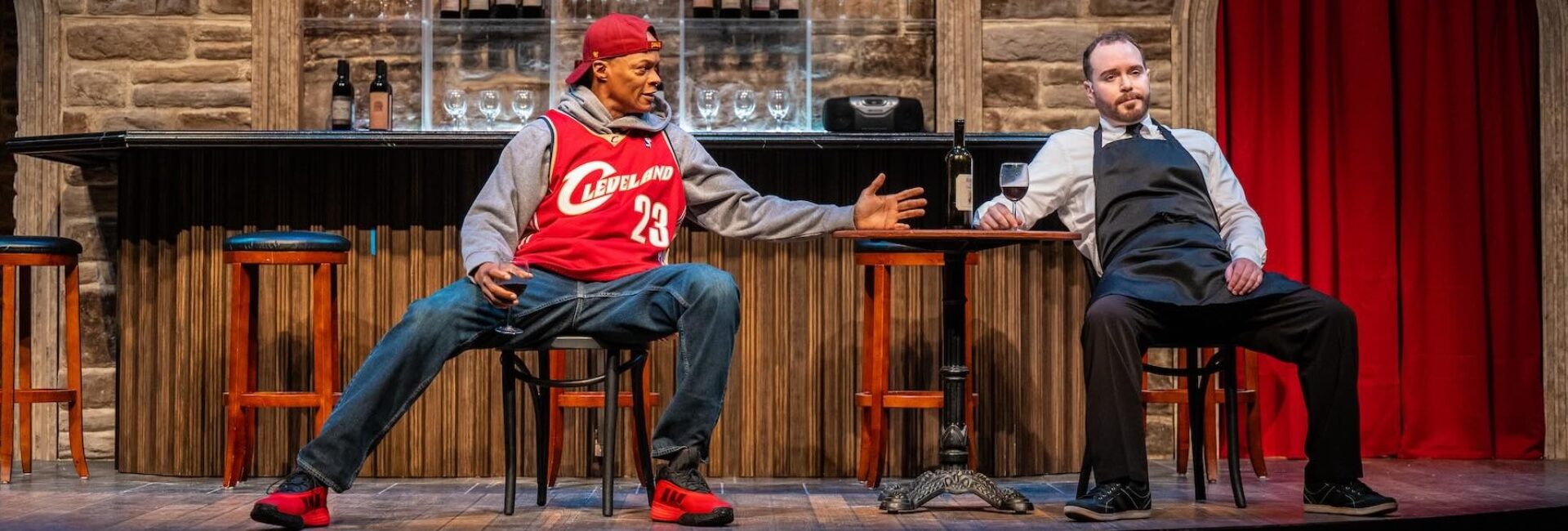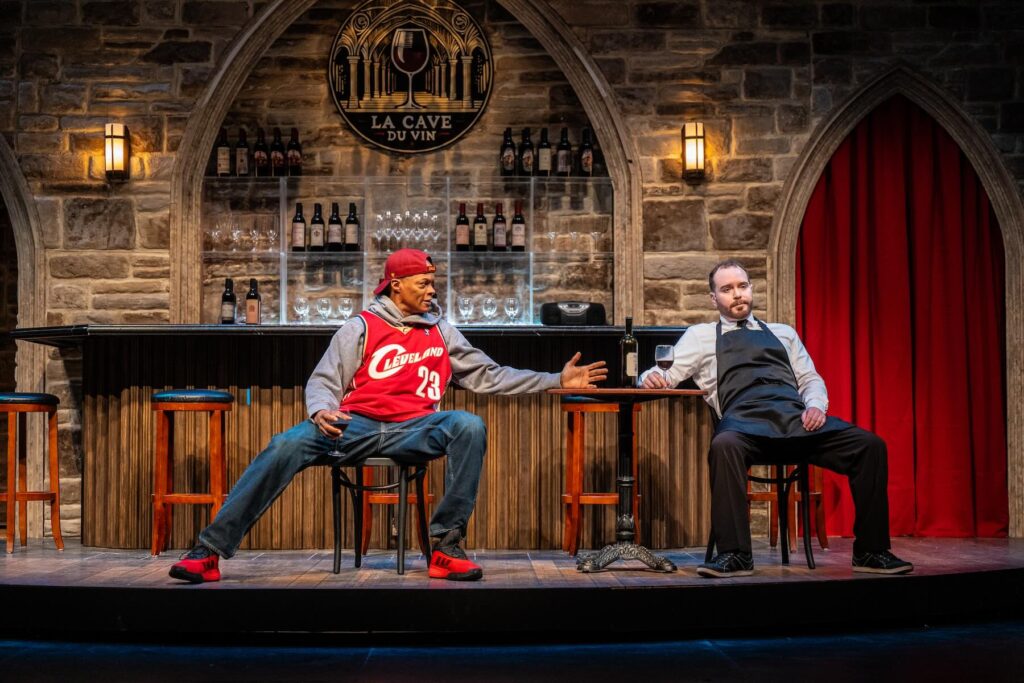Theatre Aquarius scores with King James

This production explores male friendship through the lens of basketball’s larger-than-life LeBron James and the triumph and heartbreak of being a diehard sports fan.
It's not necessary to be a basketball devotee in order to enjoy Theatre Aquarius’s debut production of the season, but it sure helps to appreciate the power of sports as a cultural force.
King James isn’t really about NBA superstar LeBron James but rather what he means to two very different Cleveland residents Shawn (Michael Blake) and Matt (Devin MacKinnon) who forge a tumultuous friendship over their shared love of the Cavaliers.
This is a bold, multilayered and memorable production with standout performances by its two actors.
The house pounds with dance and hip hop music from Diana Reyes (Fly Lady Di), who spins from a balcony box, and the rotating set features a backdrop inspired by street graffiti. Scenes open with audio clips from pivotal games and interviews with James at milestones in his career.

The backdrop of the play is the arc of James’s career between his draft into the league in 2003 by the Cavaliers and his leading of the team in 2016 to a championship. But the narrative of the story is the nature of male friendship through the ups and downs of life. Secondary themes are the anguish of being a diehard sports fan, the wistful nostalgia of childhood rituals and the resonance of disappointments, and whether it’s possible to rebound when dreams are realized and then fall apart.
Blake lives in Hamilton and has previously starred in Aquarius’s Beauty and the Beast, and MacKinnon, of Stratford, is making his Aquarius debut. Each expertly handles the demands of a two-character, dialogue-heavy script that ranges from jock-talk to hesitant expression of long-repressed feelings.
Strong and complementary acting allows for exploration of the unspoken intimacy of male bonding, and implications of the things that aren’t said when misunderstandings arise or jealousy raises its ugly head.
The back and forth of the dialogue (frequent profanity feels authentic and necessary here) has parallels in the rapid shifts between offence and defence in basketball. And there are plenty of well-delivered laughs during the four time-skipping scenes that mimic the quarters of a match on the court.
In the world of Shawn and Matt, “bandwagon fan” is the worst possible insult and the topic of whether James or Michael Jordan is the greatest player of all time leads to frequent – and heated – debates.

Shawn and Matt’s bond is tested over James’s controversial and heartbreaking decision for Cleveland fans to leave his home state of Ohio to head to the Miami Heat in 2010.
Matt understands James wants to win and Cleveland’s team isn’t ready. For Shawn, though, it’s a betrayal plain and simple.
Shawn, a writer, is exuberant, optimistic and worldly, while Matt, a bartender who dreams of owning his own place, is cynical, stuck in his ways, and prone to talking about “what’s wrong with America.”
Shawn tends to see the good in people, while Matt is eaten up by the ways he’s been wronged, especially by his parents.
They are ying and yang, both struggling to make their way, until a blowup over race and diverging financial success, tears them apart.
Race is handled subtly and with nuance here and Rajiv Joseph’s script never loses its focus on masculine friendship.
The setting resonates, too. Cleveland, it’s well known, is a frequently unappreciated and underestimated. That theme will feel more than familiar to Hamiltonians.
King James had its world premiere in 2022 in co-productions at Chicago’s Steppenwolf Theatre Company Chicago and Center Theatre Group/Mark Taper Forum in Los Angeles.
This production is further evidence of the vision and vow of Theatre Aquarius artistic director Mary Francis Moore and executive director Kelly Staughan to push the boundaries and bring new and diverse voices to the stage.
Will King James be a slam dunk for everyone? No, it won’t. A predominantly senior crowd at a Saturday matinee didn’t always seem to entirely know what to make of it.
But that is to be expected – and is maybe even the point – when staging works that challenge and explore.














